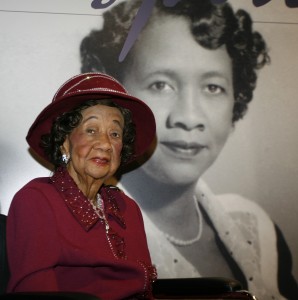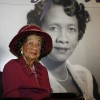
By Abhinav Venkat
UJW Staff
WASHINGTON – Dorothy Irene Height, a central figure of the American civil rights movement who promoted feminism and racial equality in her battle against social inequality, died April 20, at Howard University Hospital after a prolonged illness.
She was 98.
Height led the National Council of Negro Women from 1957 to 1997, fighting for women’s rights and equality in education and pay. Involved in every major civil rights milestone, from the 1963 March on Washington to the 2008 election of President Barack Obama, Height has been an informal advisor to presidents since Franklin Delano Roosevelt.
“And even in the final weeks of her life – a time when anyone else would have enjoyed their well-earned rest – Dr. Height continued her fight to make our nation a more open and inclusive place for people of every race, gender, background and faith,” Obama said in a statement.
Height’s activism began in her teenage years, when she protested lynching and the segregation in the armed forces. Often, as the only woman at the table with the Rev. Dr. Martin Luther King Jr., and other civil rights and national political figures, she reminded men not to underestimate the abilities of women to contribute to reform.
“Dorothy Height deserves credit for helping black women understand that you had to be feminist at the same time you were African-American . . . that you had to play more than one role in the empowerment of black people,” Del. Eleanor Holmes Norton (Del. D.C.), once said about Height.
While not as universally recognized as King or Thurgood Marshall, the first African-American appointed to the U.S. Supreme Court, Height is one of the few Americans who have been awarded both the Presidential Medal of Freedom and the Congressional Gold Medal.
RELATED STORIES | Multimedia Saying Farewell to Civil Rights Icon Dorothy Height


